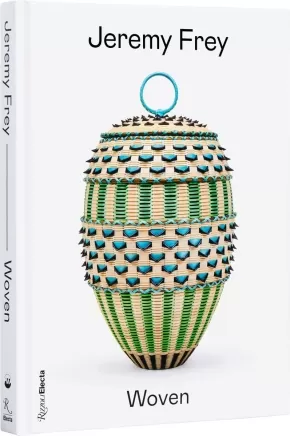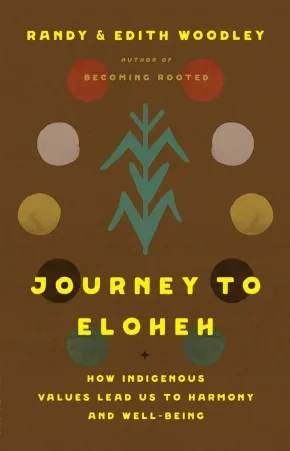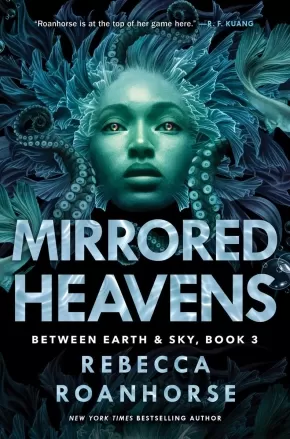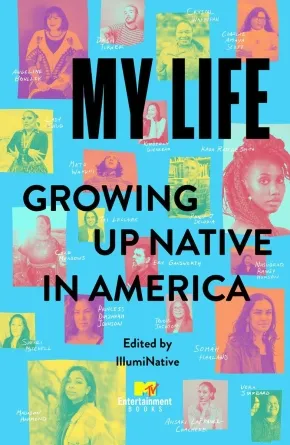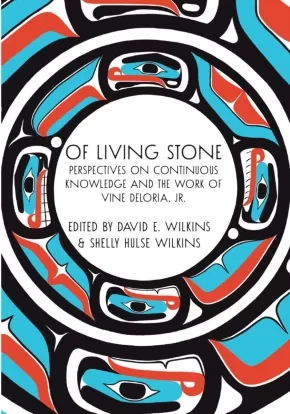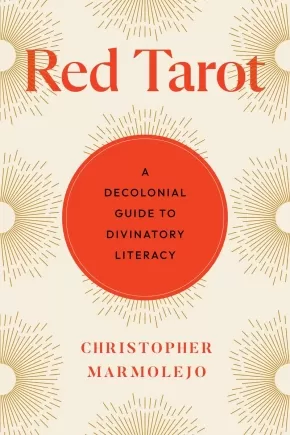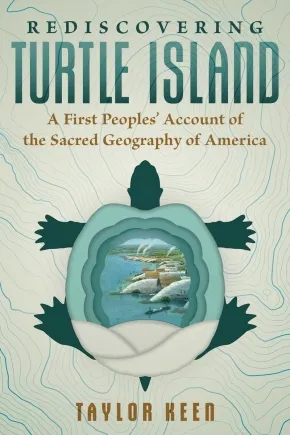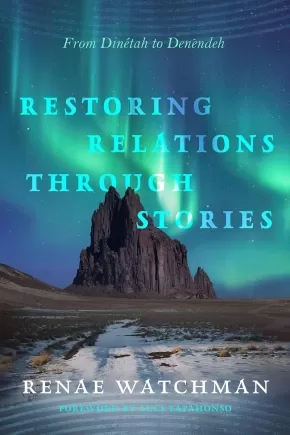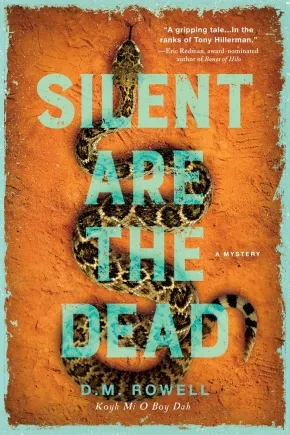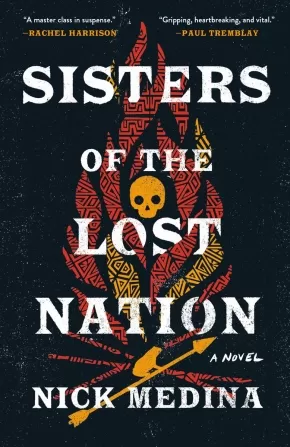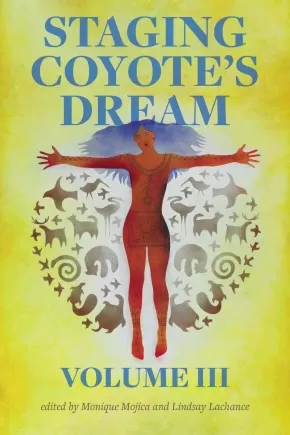Indigenous Peoples in the United States
Synopsis:
"If you're in the mood for a steamy enemies-to-lovers romance but also a chilling haunted-house horror, GET YOU A BOOK THAT CAN DO BOTH! I blazed through this book in one sitting because I just couldn't wait to find out what would happen next!" - Alicia Thompson, USA Today bestselling author of With Love, from Cold World
An enemies to lovers romance with a spooky twist where two feuding writers end up on a writers retreat together at a haunted castle in Scotland.
It's been months since horror author Penelope Skinner threw a book at Neil Storm. But he was so infuriating, with his sparkling green eyes and his bestselling horror novels that claimed to break Native stereotypes. And now she’s a publishing pariah and hasn’t been able to write a word since. So when her friend invites her on a too-good-to-be-true writers retreat in a supposedly haunted Scottish castle, she seizes the opportunity. Of course, some things really are too good to be true.
Neil wants nothing less than to be trapped in a castle with the frustratingly adorable woman who threw a book at him. She drew blood! Worse still, she unleashed a serious case of self-doubt! Neil is terrified to write another bestselling “book without a soul,” as Pen called it. All Neil wants is to find inspiration, while completely avoiding her.
But as the retreat begins, Pen and Neil are stunned to find themselves trapped in a real-life ghost story. Even more horrifying, they’re stuck together and a truly shocking (extremely hot) almost-kiss has left them rethinking their feelings, and… maybe they shouldn’t have been enemies at all? But if they can’t stop the ghosts pursuing them, they may never have the chance to find out.
Full of spooky chills and even more sexy thrills, If I Stopped Haunting You by Colby Wilkens is the funny, fast-paced romp romance readers have been waiting for!
Reviews
"I devoured this debut by Colby Wilkens! The author writes with such authority and conviction that I really felt like she had lived in a haunted castle in Scotland, just like the characters. Every sentence felt like it was coming from a place of authenticity, which I loved. In addition, the spooky elements are genuinely spooky, the enemies to lovers genuinely enemies, and it all came together beautifully. I didn't realize I needed a romance book married to cozy horror but now I'm wondering where this particular mashup has been all my life. Can't wait to read the next!" - Jessica Clare, New York Times bestselling author
"If I Stopped Haunting You skillfully balances creepiness, difficult conversations, and a lot of steam to deliver readers a satisfying debut and a well-earned Happily Ever After." - Helena Greer, author of Season of Love and For Never and Always
“If I Stopped Haunting You is a complex deep dive into identity, history, and staying true to one’s self that pulls no punches. With a toe curling romance and bone chilling ghosts lurking around every corner, this effortless blend of romance and horror is not to be missed.” - Sonia Hartl, author of Heartbreak For Hire and Rent to Be
"Brimming with angst, heat, and heart, If I Stopped Haunting You is the unputdownable rivals-to-lovers romance I've been craving! Set in a haunted Scottish castle with atmosphere to die for, this is a cozy season must-read. I fell hard for Penelope and Neil as they traversed their differences toward deeper understanding and love–with lots of steam along the way! Writing with thrilling boldness, sparkling wit, and profound care for queer and indigenous representation, Colby Wilkens is a highly necessary and breathtakingly talented fresh voice in romance–meet your new autobuy author." – Courtney Kae, author of In the Event of Love and In the Case of Heartbreak
"Masterfully blends the delicious tension of a great rivals-to-lovers romance with the gothic vibes of a creepy haunted house story. The heat between Penelope and Neil ignites as they untangle their complicated relationship and grow closer together, and the horror elements create some truly memorable moments of forced proximity. If I Stopped Haunting You hooked me from the first page, and I didn't want to put it down when it was over!" -Jenny L Howe, author of On the Plus Side and The Make-Up Test
"If you're in the mood for a steamy enemies-to-lovers romance but also a chilling haunted-house horror, GET YOU A BOOK THAT CAN DO BOTH! Colby Wilkens' debut If I Stopped Haunting You is so inventive and immersive -- I couldn't tell if my shoulders were up by my ears because of the creeping dread of whatever was going on in that castle or because of the electric chemistry between Pen and Neil. I blazed through this book in one sitting because I just couldn't wait to find out what would happen next!" - Alicia Thompson, USA Today bestselling author of With Love, from Cold World
Additional Information
320 pages | 5.38" x 8.25" | Paperback
Synopsis:
A man lunges in front of a car. An elderly woman silently drowns herself. A corpse sits up in its coffin and speaks. On this reservation, not all is what it seems, in this new spine-chilling mythological horror from the author of Sisters of the Lost Nation.
All Noemi Broussard wanted was a fresh start. With a new boyfriend who actually treats her right and a plan to move from the reservation she grew up on—just like her beloved Uncle Louie before her—things are finally looking up for Noemi. Until the news of her boyfriend’s apparent suicide brings her world crumbling down.
But the facts about Roddy’s death just don’t add up, and Noemi isn’t the only one who suspects that something menacing might be lurking within their tribal lands.
After over a decade away, Uncle Louie has returned to the reservation, bringing with him a past full of secrets, horror, and what might be the key to determining Roddy’s true cause of death. Together, Noemi and Louie set out to find answers...but as they get closer to the truth, Noemi begins to wonder whether it might be best for some secrets to remain buried.
Reviews
"Nick Medina blends myth and reality, supernatural danger and ordinary human menace into a story that will pull your heartstrings even as it shreds your nerves. Like the alligators lurking in its pages, Indian Burial Ground will swallow you whole."—Ana Reyes, New York Times bestselling author of The House in the Pines
"You may arrive at Indian Burial Ground because of author Nick Medina's incredible debut, Sisters of the Lost Nation, or his exceptional story in the bestselling Never Whistle at Night anthology, or perhaps he's a new-to-you author, and now you have the pleasure of reading both of these, but the important thing is you have arrived at an exceptional new novel that lingers long after the last page is turned. From two compelling points of view decades apart, Medina has crafted a story of generational trauma and mythical fears, with deep roots in Native history and modern life, that's part supernatural horror, part mystery, but perhaps most importantly, a story of hope in the darkness." —Vanessa Lillie, USA Today bestselling author of Blood Sisters
"Indian Burial Ground is wonderfully creepy and relentlessly dark. Part adventure narrative, part supernatural horror story, and part eerie mystery, this novel slithers under your skin and makes you wish you knew less with every step it brings you closer to the truth. Nick Medina is waiting in the dark to whisper in your ear about dead things, about the tamahka, about blood and Native mythology. You should let him."—Gabino Iglesias, author of The Devil Takes You Home
"An intense family drama set on the (fictional) Rez where the threat of the mysterious Takoda Vampire makes for a gripping—and creepy!—read. Nick Medina is an Indigenous writer to watch."—Erika T. Wurth, author of White Horse
"Nick Medina’s Indian Burial Ground is an expertly-paced novel, chock-full of Native lore and spine-chilling suspense. When the horror hits, it hits hard."—Jimmy Juliano, author of Dead Eleven
Additional Information
384 pages | 6.19" x 9.30" | Hardcover
Synopsis:
The only book on award-winning Indigenous basket maker Jeremy Frey, accompanying his first major traveling exhibition.
Frey (Passamaquoddy) is one of the most respected Indigenous basket makers working today. Descended from a long line of basket makers, his work is known for its intricate design and exquisite artistry, which reflect both traditional techniques and his own creative vision.
This catalogue considers his work from a variety of perspectives. Secord, whom Frey credits for guiding his career as the founder of Maine Indian Basketmakers Alliance, contributes a detailed biographical essay. DeSimone situates Frey’s work in the broader field of contemporary art, with a specific focus on the new video work he is making for the exhibition. Hoska focuses on Frey’s art in the broader context of Native basket and fiber arts. And Mize considers the ways in which his expanding practice registers ecological knowledge, time, and the impact of climate change.
Additional Information
160 pages | 8.85" x 11.91" | Hardcover
Synopsis:
Rooted in ten Indigenous values, this thoughtful, holistic book-written by Randy Woodley, a Cherokee descendant recognized by the Keetoowah Band, and Edith Woodley, an Eastern Shoshone tribal member-helps readers learn lifeways that lead to true wholeness, well-being, justice, and harmony.
The pursuit of happiness, as defined by settlers and enshrined in the American Dream, has brought us to the brink: emotionally, spiritually, socially, and as a species. We stand on a precipice, the future unknown. But Indigenous people carry forward the values that humans need to survive and thrive. In Journey to Eloheh, Randy and Edith Woodley help readers transform their worldviews and lifestyles by learning the ten values of the Harmony Way. These ten values, held in common across at least forty-five Indigenous tribes and nations, can lead us toward true well-being: harmony, respect, accountability, history, humor, authenticity, equality, friendship, generosity, and balance. By learning, converting to, and cultivating everyday practices of Eloheh--a Cherokee word meaning harmony and peace--we have a chance at building well-being and a sustainable culture.
In this riveting account of their own journeys toward deepening their indigeneity and embodying harmony, Edith, an activist-farmer, and Randy, a scholar, author, teacher, and wisdom-keeper, help readers learn the lifeways of the Harmony Way. The journey to Eloheh holds promise for all of us, Indigenous or not.
We know the Western worldview is at odds with a sustainable Earth, a just common life, and personal well-being. Together we can convert to another way of living--one that recognizes the Earth as sacred, sees all creation as related, and offers ancestral values as the way forward to a shared future.
Reviews
"Edith and Randy Woodley's passion and persistence to create spaces of community and care are inspiring. A blend of storytelling, theology, and guidance harvested directly through Indigenous wisdom, Journey to Eloheh reminds us to stay true to the path of kinship and belonging, and to never give up on justice and peacemaking in the world. I highly recommend this book for anyone who is searching for a way to be a better relative on this earth or to fight for a better reality for future generations. This book will help you get there." --Kaitlin B. Curtice, award-winning author of Native and Living Resistance
"Spiritual journey as autobiography: like a Navajo weaver, Journey to Eloheh skillfully connects Native American theology and personal experience into a way of life. If you are looking for your own path, Edith and Randy Woodley's story is a good place to begin." --Steven Charleston, author of Ladder to the Light, Spirit Wheel, and We Survived the End of the World
"There is so much we can all learn from the wisdom of Indigenous culture. In this book, Randy and Edith Woodley invite us to join them on a journey of learning a different way of living that leads to wholeness, abundance, and peace. They generously share their life experience and spiritual insights to show us a better path toward harmony with the whole of creation. I highly recommend it!" --Dr. Brenda Salter McNeil, author of Becoming Brave and Roadmap to Reconciliation 2.0
"A practical antidote to despair, hopelessness, and aimless consumption, this book offers a robust and healing path to well-being for all of us. The Woodleys are wise and trustworthy guides for restoration and embodied goodness within the community of creation." --Sarah Bessey, author of Field Notes for the Wilderness: Practices for an Evolving Faith
"Randy and Edith Woodley write with insight and wisdom from their years of experience. They have prophetic voices that draw attention to the needs of all of our relatives. Their voices rise out of difficult situations in which they have done more than survive; they are showing how to flourish in an ever-changing world." --Ray Aldred, director of the Indigenous Studies Program, Vancouver School of Theology
"For many years, I have considered Randy Woodley one of my teachers. His books, lectures, and personal conversations--together with his humble, yet bold, spirit as a teacher--have enriched and challenged me. His new book, co-written with his wise and eloquent wife, Edith, is a masterpiece, a book I would recommend to anyone and everyone. It beautifully combines the sharing of their life-story with the essence of their lifeway, articulated in ten powerful Indigenous values that are as deeply spiritual as they are deeply practical." --Brian McLaren, author, teacher, and activist
Educator Information
Keywords / Themes: Well-Being; the Harmony Way (Eloheh); Ten Eloheh Values; Indigenous Knowledge, Indigenous Values; Personal Growth.
Additional Information
264 pages | 5.75" x 8.75" | Hardcover
Synopsis:
The interwoven destinies of the people of Meridian will finally be determined in this stunning conclusion to New York Times bestselling author Rebecca Roanhorse’s Between Earth and Sky trilogy.
Even the sea cannot stay calm before the storm. —Teek saying
Serapio, avatar of the Crow God Reborn and the newly crowned Carrion King, rules Tova. But his enemies gather both on distant shores and within his own city as the matrons of the clans scheme to destroy him. And deep in the alleys of the Maw, a new prophecy is whispered, this one from the Coyote God. It promises Serapio certain doom if its terrible dictates are not fulfilled.
Meanwhile, Xiala is thrust back amongst her people as war comes first to the island of Teek. With their way of life and their magic under threat, she is their last best hope. But the sea won’t talk to her the way it used to, and doubts riddle her mind. She will have to sacrifice the things that matter most to unleash her powers and become the queen they were promised.
And in the far northern wastelands, Naranpa, avatar of the Sun God, seeks a way to save Tova from the visions of fire that engulf her dreams. But another presence has begun stalking her nightmares, and the Jaguar God is on the hunt.
Nominated for the Nebula, Lambda, Locus, and Hugo Awards, winner of the Alex Award from the American Library Association and the Ignyte Award from Fiyah magazine, the Between Earth and Sky trilogy is amongst our most lauded modern fantasy series from The New York Times, Los Angeles Times, and USA TODAY bestselling author Rebecca Roanhorse.
Reviews
“Rebecca Roanhorse… [is one] of the Indigenous novelists reshaping North American science fiction, horror and fantasy — genres in which Native writers have long been overlooked.”— The New York Times
Educator & Series Information
This is the third book in the Between Earth and Sky Series.
Additional Information
608 pages | 6.00" x 9.00" | Hardcover
Synopsis:
A moving collection of twenty powerful essays, poems, and more that capture and celebrate the modern Native American experience, featuring entries by Angeline Boulley, Madison Hammond, Kara Roselle Smith, and many more.
With heart, pathos, humor, and insight, twenty renowned writers, performers, athletes, and activists explore what it means to be Native American today. Through a series of essays and poems, these luminaries give voice to their individual experiences while shedding light on the depth and complexity of modern Native American identity, resiliency, and joy.
The topics are as fascinating and diverse as the creators. From Mato Wayuhi, award-winning composer of Reservation Dogs, honoring a friend who believed in his talent to New York Times bestselling author Angeline Boulley exploring what it means to feel Native enough, these entries are not only an exploration of community, they are also a call for a more just and equitable world, and a road map toward a brighter future.
Edited by IllumiNative, an organization dedicated to amplifying contemporary Native voices, My Life: Growing Up Native in America features contributions from Angeline Boulley, Philip J. Deloria, Eric Gansworth, Kimberly Guerrero, Somah Haaland, Madison Hammond, Nasugraq Rainey Hopson, Trudie Jackson, Princess Daazhraii Johnson, Lady Shug, Ahsaki Baa LaFrance-Chachere, Tai Leclaire, Cece Meadows, Sherri Mitchell, Charlie Amaya Scott, Kara Roselle Smith, Vera Starbard, Dash Turner, Crystal Wahpepah, and Mato Wayuhi.
Additional Information
224 pages | 5.50" x 8.37" | 16-pg b&w insert | Hardcover
Synopsis:
Of Living Stone: Perspectives on Continuous Knowledge and the Work of Vine Deloria, Jr. is a collection of new essays on the legacy of Vine Deloria, Jr., one of the most influential thinkers of our time. This insightful collection features more than thirty original pieces, bringing together Tribal leaders, artists, scientists, activists, scholars, legal experts, and humorists. A group of French scholars offers surprising perspectives on Deloria’s continuing global influence. Readers will find thoughtful and creative views on his wide-ranging and world-changing body of work. Some build upon his ideas while others offer important criticisms. In addition to its content, this volume is unique in that it was designed to center the traditional exercise of continuous knowledge whereby information is routinely shared, considered, and pragmatically adapted as it flows between generations. In this way, people, ideas and traditions remain alive and relevant—not set in stone —as the past is honored by those living in the present as they prepare for the future.
The book includes contributions from a number of remarkable individuals, including:
- Climate expert Margaret Redsteer (Crow)
- Melanie Yazzie (Diné), host of The Red Power Hour podcast
- Cheryl Crazy Bull (Sicangu Lakota), president of the American Indian College Fund
- Activists Faith Spotted Eagle (Yankton Dakota) and Lauren Schad (Cheyenne River Lakota)
- Writer and producer Migizi Pensoneau (Ponca/Ojibwe)
- Environmental scientists Kyle Whyte (Citizen Potawatomi) and Ryan Emanuel (Lumbee)
- Experts on Tribal Governance Deron Marquez (Yuhaaviatam of San Manuel), Frank Ettawageshik (Little Traverse Bay), Norbert Hill (Oneida), Megan Hill (Oneida), and Marty Case.
- Artists Cannupa Hanska Luger (MHA-Three Affiliated Tribes) and James Johnson (Tlingit)
- Legal Scholars Sarah Deer (Muscogee), Rebecca Tsosie (Yaqui descent), and Gabe Galanda (Round Valley)
- Archaeologist Paulette Steeves (Cree-Metis)
- Scholars of Indigenous Traditions Noenoe Silva (Kānaka Maoli), Natalie Avalos (Chicana of Mexican Indigenous descent), Tom Holm (Cherokee), and Greg Cajete (Tewa-Santa Clara Pueblo).
Time magazine named Vine Deloria, Jr. as one of the greatest thinkers of the twentieth century, and his research, writings, and teachings on history, law, religion, and science continue to influence generations of Indigenous peoples and their allies across the world.
Reviews
“For me as a young person in the 1980s and 1990s, Vine was the only stranger I thought of as family. He was funny and heart-stabbingly blunt. So we have Vine Deloria to thank for revitalizing Indigenous knowledge gathering. Inspired by Vine’s life work, Anishinaabe people now understand that we learn by listening (bzindamowin), observing (gnawaaminjigewin), and ceremony (manidookewin). We also know it’s important to have a LOT of fun (miiziiwapine). Of Living Stone is both a somber memorial and a raucous celebration of Vine’s work.”—Matthew Fletcher (Grand Traverse Band of Ottawa and Chippewa Indians), University of Michigan, and author of The Ghost Road
Additional Information
528 pages | 6.00" x 9.00" | Paperback
Synopsis:
Designed to be used with any deck, Red Tarot is a radical praxis and decolonized oracle that moves beyond self-help and divination to reclaim tarot for liberation, self-determination, and collective healing.
Red Tarot speaks to anyone othered for their identity or ways of being or thinking—LGBTQIA2S+ and BIPOC folks in particular—presenting the tarot as a radical epistemology that shifts the authority of knowing into the hands of the people themselves.
Author Christopher Marmolejo frames literacy as key to liberation, and explores an understanding of tarot as critical literacy. They show how the cards can be read to subvert the dynamics of white supremacist-capitalist-imperialist-patriarchy, weaving historical context and spiritual practice into a comprehensive overview of tarot.
Situating tarot imagery within cosmologies outside the Hellenistic frame—Death as interpreted through the lens of Hindu goddess Chhinnamasta, the High Priestess through Aztec goddess Coyolxauhqui—Marmolejo’s Red Tarot is a profound act of native reclamation and liberation. Each card’s interpretation is further bolstered by the teachings of Toni Morrison, bell hooks, Paulo Freire, José Esteban Muñoz, and others, in an offering that integrates intersectional wisdom with the author’s divination practice—and reveals tarot as an essential language for liberation.
Reviews
“Red Tarot passionately reindigenizes the symbolism of each tarot card and demonstrates the importance of this reclamation. Along with illuminating bold interpretations of the tarot, it pulls the reader into each tarot narrative in a brilliant and poetic manner. I loved this book!”—Erika Buenaflor, MA, JD, author of Cleansing Rites of Curanderismo and Veneration Rites of Curanderismo
“Red Tarot is a volume that truly, as in its own words, readies its reader to come as ‘part prophet, part poet, part political participant.’ This is a generous book. Marmolejo has done something truly wonderful here. They have made a book that makes it possible for you to engage with the future in the best way possible which is with the feeling of blowing your brain hole open. Anyone who hungers for more possibility when faced with the prospect of reading the future should keep Red Tarot with them. I know that it will be very dear to me. Red Tarot shows you how to find a sense of almost unnerving freedom in the future. This book treats reading as a medicine.”—Alice Sparkly Kat, author of Postcolonial Astrology
“After a pandemic’s collective deadness, I’m looking for resources that help us all claim collective aliveness. You’re holding one of the finest contributions to help find a portal to Eros; the rapture of aliveness, and the transcendent support of red reading. Christopher Marmolejo’s Red Tarot is an invaluable, extensively researched tool that helps you remember the language, symbols, and fields of somatic and intuitive knowledge acquisition. It’s a highly integrative work; successfully, accessibly merging the best of Christopher’s teachers in the decolonial and divinatory fields. Red Tarot achieves the work’s goal of Indigenous reclamation, reimagining, and regeneration in this pivotal time.”—Colin Bedell, astrologer and founder of QueerCosmos
Additional Information
448 pages | 5.98" x 8.96" | Paperback
Synopsis:
An exploration of Indigenous cosmology and history in North America
• Examines the complexities of Indigenous legends and creation myths and reveals common oral traditions across much of North America
• Explores the history of Cahokia, the Mississippian Mound Builder Empire of 1050-1300 CE, told through the voice of Honga, a Native leader of the time
• Presents an Indigenous revisionist history regarding Thomas Jefferson, expansionist doctrine, and Manifest Destiny
While Western accounts of North American history traditionally start with European colonization, Indigenous histories of North America—or Turtle Island—stretch back millennia. Drawing on comparative analysis, firsthand Indigenous accounts, extensive historical writings, and his own experience, Omaha Tribal member, Cherokee citizen, and teacher Taylor Keen presents a comprehensive re-imagining of the ancient and more recent history of this continent’s oldest cultures. Keen reveals shared oral traditions across much of North America, including among the Algonquin, Athabascan, Sioux, Omaha, Ponca, Osage, Quapaw, and Kaw tribes. He explores the history of Cahokia, the Mississippian Mound Builder Empire of 1050–1300 CE. And he examines ancient earthen works and ceremonial sites of Turtle Island, revealing the Indigenous cosmology, sacred mathematics, and archaeoastronomy encoded in these places that artfully blend the movements of the sun, moon, and stars into the physical landscape.
Challenging the mainstream historical consensus, Keen presents an Indigenous revisionist history regarding Thomas Jefferson, expansionist doctrine, and Manifest Destiny. He reveals how, despite being displaced as the United States colonized westward, the Native peoples maintained their vision of an intrinsically shared humanity and the environmental responsibility found at the core of Indigenous mythology.
Building off a deep personal connection to the history and mythology of the First Peoples of the Americas, Taylor Keen gives renewed voice to the cultures of Turtle Island, revealing an alternative vision of the significance of our past and future presence here.
Reviews
“Brother Keen, with his infinite Indigenous and academic knowledge, brings forth amazing truths about ancient North American cultures the modern world was unaware of. Not only are the ancient earthworks extensive and scientifically and astronomically complex but Keen unveils they are all connected across the entire continent, mirroring the heavens. Simply incredible research.” — Scott Wolter, host of History 2 (H2) Channel’s America Unearthed, world-renowned forensic geol
“Careful analysis by Taylor Keen of the placement and designs of earthworks of the Indigenous people of North America reveals far more complex planning and design was involved than just random location selection of mounds for burials, as we were taught to think. His geographical analysis reveals the sacred earthworks designs were far more advanced and esoteric in nature, something he is uniquely qualified to understand as Indigenous himself and a member of several esoteric orders. He proves definitively the intricate level of knowledge of astronomy, heavenly body movements, mathematics, and cosmology involved in the creation of these earthworks, not only at a local level, but incredibly as long-range alignments as well. This revelation, Keen explains, was something that was dismissed and suppressed by early nineteenth-century archaeologists who breached and destroyed the sacred earthworks and burial mounds as part of the promotion of ‘manifest destiny,’ with the intent being justification of taking tribal lands for settlement. Keen’s incredibly important work gives a whole new perspective on the history of North America.” — Janet Wolter, coauthor of America: Nation of the Goddess
“The official history of the United States begins with Spanish contact in the late fifteenth century. The oral traditions and legends of the various Native peoples of North America, however, stretch back much earlier, into the opaque mists of preliterate times. With a member of the Earthen Bison Clan of the Omaha Tribe to serve as our guide, Rediscovering Turtle Island leads the reader along near-forgotten, overgrown paths that twist and turn throughout a resacralized landscape, decorated with ancient landmarks, populated with whispering ghosts and supernatural beings. The sacred geography of America will never again appear the same.” — P. D. Newman, author of Native American Shamanism and the Afterlife Journey in the Mississippi Valle
“What could be more fascinating than the origin of mankind itself? The premise is staggering and the consequences far-reaching. Keen’s hard work pays off immensely in Rediscovering Turtle Island, and readers will be gripped by that experience on every page.” — Sidian M.S. Jones, coauthor of The Voice of Rolling Thunder
Additional Information
208 pages | 6.00" x 9.00" | 70 b&w illustrations | Paperback
Synopsis:
Drawing its title from the 1863 Federal Act that banished the Dakota people from their homelands, this remarkable debut collection reckons with the present-day repercussions of historical violence. Through an array of brief lyrics, visual forms, chronologies, and sequences, these virtuosic poems trace a path through the labyrinth of distances and absences haunting the American colonial experiment.
Removal Acts takes its speaker’s fraught methods of accessing the past as both subject and material: family photos, the fragile artifacts of primary documents, and the digital abyss of web browsers and word processors. Alongside studies of two of her Dakota ancestors, Lynch has assembled an intimate record of recovery from bulimia, insisting that self-erasure cannot be separated from the erasures of genocide. In these rigorous, scrutinizing examinations of “removal” in its many forms—as physical displacement, archival absence, Whiteness, and vomit—Lynch has crafted a harrowing portrait of the entwined relationship between the personal and historical. The result is a powerful affirmation of resilience and resolute presence in the face of eradication.
Reviews
"In this sharp debut, words are bracketed and struck through, placed in columns and alongside arrows. . . . With each deliberate letter, Lynch deconstructs a violent past and present, while allowing herself and the reader to search for paths toward an as-yet unknown future."—Dasia Moore, The Boston Globe
"Erin Marie Lynch’s debut poetry book, Removal Acts, is a deeply personal, formally inventive investigation into history, ancestry, and loss. . . . Throughout the work, Lynch’s language remains precise, compassionate, inquisitive, and vulnerable."—Mathangi Subramanian, BOMB Magazine
"Lynch interweaves the stories of two of her ancestors with her own recovery from bulimia to explore the twinned legacies of historical and self erasure. The result is a moving meditation on 'removal' in its many forms that melds together the personal and historical to craft a testament to Indigenous resilience and survival in the face of eradication."—Eliza Browning, Electric Literature
"Removal Acts is a rich and fraught collection that confronts the legacy of displacement and erasure with searing honesty. Debut author Erin Marie Lynch does not shy away from hard questions, including her right to some of the stories in her collection. . . . Removal Acts combines technical prowess and attention to craft with deliberate experimentation, signaling Lynch as a poet with talent that far surpasses expectations for a debut author."—Ronnie K. Stephens, The Poetry Question
Additional Information
136 pages | 7.05" x 8.97" | Paperback
Synopsis:
Restoring Relations Through Stories introduces, synthesizes, and analyzes traditional stories by Diné and Dene storytellers in orature and film. The book conceptualizes narrative autonomy as hane’tonomy and visual storytelling from a Diné perspective, offering a map for re-storying that resists inauthentic and misappropriated stories. Watchman centres Indigenous narratives and examines how these narratives are tied to land and relations.
In the book’s final movement, the author explores the power of story to forge ancestral and kinship ties between the Diné and Dene, across time and space, through re-storying of relations.
Reviews
“Watchman shows how the old stories, maintained over centuries . . . tie together the Diné and Dene through ancestral and linguistic connections. The works that are surveyed herein reinforce the import of remembering, retelling, and revising the old stories so that they are germane today.” —Luci Tapahonso, inaugural Poet Laureat of the Navajo Nation
“Restoring Relations Through Stories shows how land-based storying among Diné and Dene peoples is strong and continues in the twenty-first century and beyond. It demonstrates how Indigenous peoples continue to remain connected to the land and sustain distinctive ways of life through their narratives, lands, and filmmaking.” —Lloyd L. Lee, author of Diné Identity in a Twenty-First Century World
“Renae Watchman’s Restoring Relations Through Stories introduces readers to the powerful force of ‘Hane’tonomy’ and the work of Diné creatives who refuse misappropriated and inauthentic views by advancing decisive versions of their world. Hane’tonomy provides us all with a new framework for understanding complex works such as Sydney Freeland’s Drunktown’s Finest, Blackhorse Lowe’s 5th World, or Hollywood’s deracinating obsession with the Navajo Nation and Shiprock as a backdrop. It moves toward a meaningful, though potentially daunting, provocation in forging new connections through restorying with ancestral kin of the Diné in present-day Canada.” —Jeff Berglund, co-editor of The Diné Reader: An Anthology of Navajo Literature
“An affirmation of our continued connections to the Mother Earth through prayers, songs, and stories. The connections to each other as Diné and Dene are remembered in Watchman’s stories of placemaking.” —Jennifer Nez Denetdale, professor and Chair of American Studies, University of New Mexico
Additional Information
356 pages | 5.00" x 8.00"| Paperback
Synopsis:
In stunning full color and accessible text, a graphic adaptation of the American Book Award winning history of the United States as told from the perspective of Indigenous peoples—perfect for readers of all ages
Roxanne Dunbar-Ortiz’s influential New York Times bestseller exposed the brutality of this nation’s founding and its legacy of settler-colonialism and genocide. Through evocative full color artwork, renowned cartoonist Paul Peart-Smith brings this watershed book to life, centering the perspective of the peoples displaced by Europeans and their white descendants to trace Indigenous perseverance over four centuries against policies intended to obliterate them.
Recognized for his adaptation of W.E.B. DuBois’ The Souls of Black Folk and his extensive expertise in the comics industry, Peart-Smith collaborates with experienced graphic novel editor Paul Buhle to provide an accessible introduction to a complex history that will attract new generations of readers of all ages. This striking graphic adaptation will rekindle crucial conversations about the centuries-long genocidal program of the US settler-colonial regime that has largely been omitted from history.
Reviews
“Adapting a work of history as dense and as vital as Dunbar-Ortiz’s An Indigenous Peoples’ History of the United States (2014) to comics form is no easy feat, but Peart-Smith is up for the task . . . A thoughtful, radically hopeful work that is sure to resonate with readers of all ages.” - Booklist
Educator Information
The publisher does not provide a recommended age range, but notes in the description that this graphic interpretation "will attract new generations of readers of all ages".
Table of Contents
Additional Information
120 pages | 8.22" x 10.28" | Hardcover
Synopsis:
A Kiowa woman faces new threats to her tribe and identity while struggling to keep her Silicon Valley business afloat. She must search deep within herself to find answers—and a murderer—in Mary Higgins Clark Award finalist D. M. Rowell’s thrilling sequel, perfect for fans of Winter Counts.
While back on tribal land, Mud Sawpole uncovers an illegal fracking operation underway that threatens the Kiowas’ ancestral homeland. But there’s an even greater threat: a local businessman involved in artifact thefts is murdered, and a respected tribe elder faces accusation of the crime. After being roped in by her cousin, Denny, they begin to investigate the death while also pursuing evidence to permanently stop frackers from destroying Kiowa land, water, and livelihoods.
When answers evade her, Mud heeds her grandfather's and great-aunt’s words of wisdom and embraces Kiowa tribal customs to find the answers that she seeks. But her ceremonial sweat leads to a vision with answers wrapped in more questions.
Mud and Denny race against the clock to uncover the real killer and must face the knowledge that there may be a traitor—and a murderer—in their midst. It’s already too late for one victim—and Mud may be next.
Educator & Series Information
This book is part of the Mud Sawpole Mystery series.
Additional Information
320 pages | 5.72" x 8.52" | Hardcover
Synopsis:
A young Native girl's hunt for answers about the women mysteriously disappearing from her tribe's reservation leads her to delve into the myths and stories of her people, all while being haunted herself, in this atmospheric and stunningly poignant debut.
Anna Horn is always looking over her shoulder. For the bullies who torment her, for the entitled visitors at the reservation’s casino…and for the nameless, disembodied entity that stalks her every step—an ancient tribal myth come-to-life, one that’s intent on devouring her whole.
With strange and sinister happenings occurring around the casino, Anna starts to suspect that not all the horrors on the reservation are old. As girls begin to go missing and the tribe scrambles to find answers, Anna struggles with her place on the rez, desperately searching for the key she’s sure lies in the legends of her tribe’s past.
When Anna’s own little sister also disappears, she’ll do anything to bring Grace home. But the demons plaguing the reservation—both ancient and new—are strong, and sometimes, it’s the stories that never get told that are the most important.
Part gripping thriller and part mythological horror, author Nick Medina spins an incisive and timely novel of life as an outcast, the cost of forgetting tradition, and the courage it takes to become who you were always meant to be.
Reviews
"Sisters of the Lost Nation weaves Native folklore with truths that we feel in our bones to create a story that is as beautiful as it is sad, as powerful as it is frightening, as familiar as it is otherworldly."—Alma Katsu, author of The Fervor and The Hunger
"Sisters of the Lost Nation is a dark and excruciatingly timely debut about the very real horror of Native girls going missing. Medina’s decisive authorial voice and unforgettable characters make for an incredibly powerful read."—Alexis Henderson, author of The Year of the Witching
Additional Information
368 pages | 5.22" x 7.97" | Paperback
Synopsis:
On the twentieth anniversary of its first volume, Staging Coyote’s Dream Volume 3 is a curated collection of new works rooted in Indigenous values, aesthetics, and narrative structures. Inspired by their own dramaturgical practices and current conversations in contemporary theatre creation, co-editors Monique Mojica and Lindsay Lachance identify the invaluable and understudied ways that many Indigenous theatre artists are creating culturally specific dramaturgical processes and shifting the paradigm for what is considered “text.” By presenting models for relational theatre-making and land-based explorations outside the traditional “well-made-play” structure, Staging Coyote’s Dream Volume 3 is more than just a collection of plays; it offers some strategies and tools for how Indigenous artists can reimagine the structures of new-play development and performance on Turtle Island.
An anthology that identifies and highlights a vast array of anti-colonial performing arts processes, including reclamation, embodiment, and community-engaged work—to name only a few—Mojica and Lachance gather the works of artists leading these practices to not only honour how their plays are expanding dramaturgy, but to build Indigenous performance literacies for all practitioners creating on Turtle Island.
Additional Information
416 pages | 6.00" x 9.00" | Paperback




